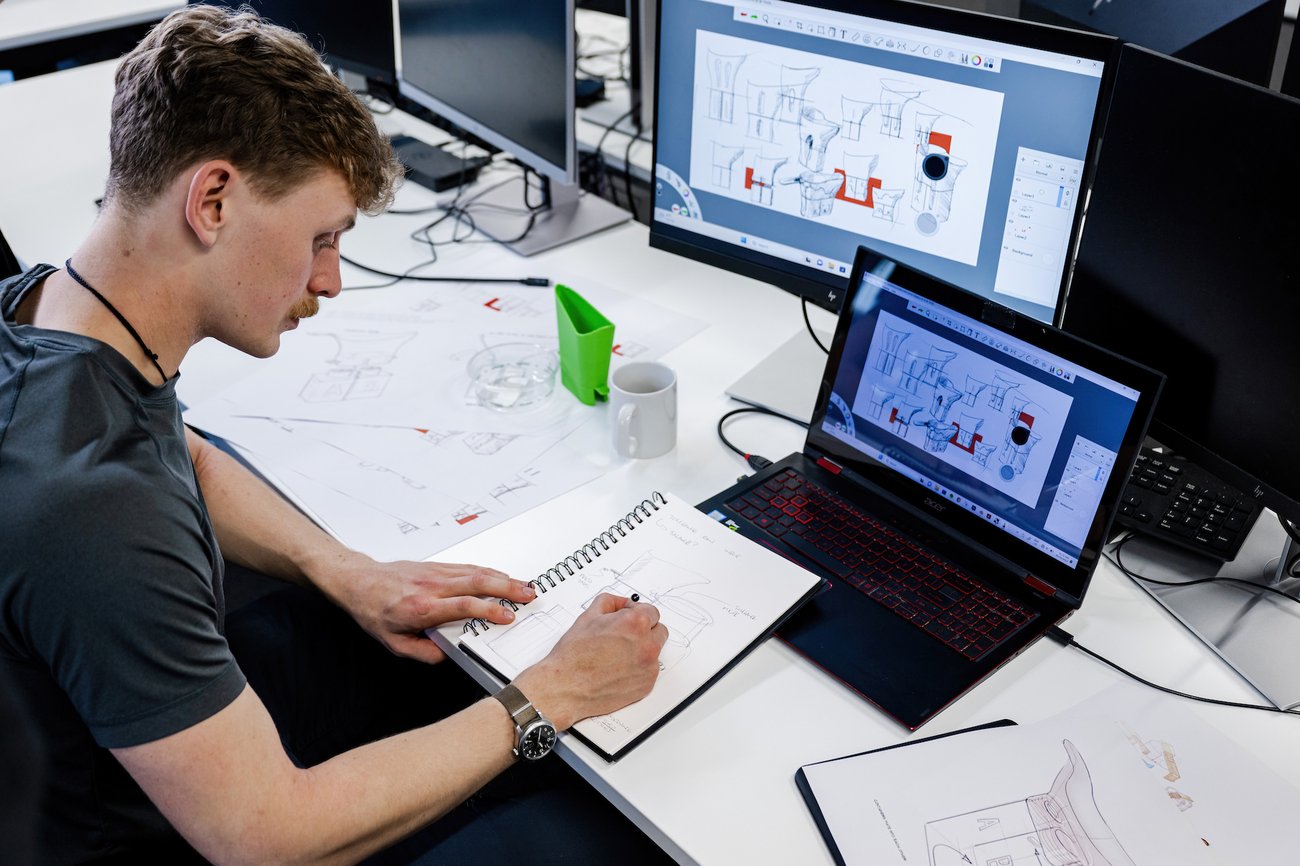
A Massey University student who invented an innovative drug-testing kit has been named this year’s James Dyson Award National Winner for New Zealand.
Nick Holland is the designer of ‘Pre-Podium’, a user-friendly, re-engineered drug testing kit that aims to improve the athlete experience.
The 22-year-old inventor studied Industrial Design and Massey University and has always loved solving challenges and trying to improve people’s lives.
As an athlete himself, he became aware of the unpleasant and uncomfortable process associated with drug testing and sought a solution to prevent people from being put off from playing competitive sports due to fear of the stress associated with the drug-testing process.
The name ‘Pre-Podium’ aimed to help fight the traditionally negative stigma around athlete drug testing, reframing it as a stepping stone towards medaling. Winning the national leg of the James Dyson Award will inject $9,500 into Holland’s project.
“I feel proud to have my work recognised and displayed on a world stage,” he says. “Becoming a national finalist also gives me more confidence to continue developing my invention.
“I plan on using the prize money to help pay for the costs of developing my invention to make it more manufacturable, sustainable, and then contribute to getting it to market.”
In competitive sport, an athlete can be drug tested at any time. The current drug testing experience, which involves collecting a urine sample which is then sent to a lab to be analysed, can be unnerving and comfortable for athletes.
Current drug testing kits offer very few accommodations for women and athletes with disabilities, often leading to athletes spilling urine on themselves and the equipment.
Pre-Podium is the first athlete drug testing kit that seriously considers the athlete’s experience across all stages of the testing process, offering improvements in sample collection, distribution, packaging and laboratory testing.
Read more: Women in STEM: The future of women in engineering
One of the judges for the awards was popular engineer and nanotechnologist Dr Michelle Dickenson.
“The clever design of Pre-Podium solves two problems, one for the athlete and one for the lab testers while maintaining the requirement of being tamper proof from start to finish,” she said.

“Nick has really thought about how to solve a real problem with a sleek and functional invention in a way that all of the judges felt could be a globally commercial product.”
The runners up were Pull Dry, invented by Joshua Unwin, and Rayflect, invented by Oliver Mortimer.
Pull Dry is a solution that allows for transporting, washing and drying clothing without electricity, using a barrel with a rope threaded through for spinning and tumble washing clothing.
For drying, four attached strings help to spin the barrel at high speed, forcing water out through centrifugal force.
Rayflect is a face shield that helps to protect physicians from dangerous radiation from medical equipment.
The shell of the face shield is made from materials doped with specific elements to help attenuate radiation and other features include subtle lighting alerts the user when they are being exposed to radiation via dosimeters on the inside and outside of the shield.
The James Dyson Awards are an international competition founded by British inventor Sir James Dyson, best known for creating the bagless vacuum cleaner.
The international top 20 shortlist will be announced on 18 October, and the international winners on 15 November.




